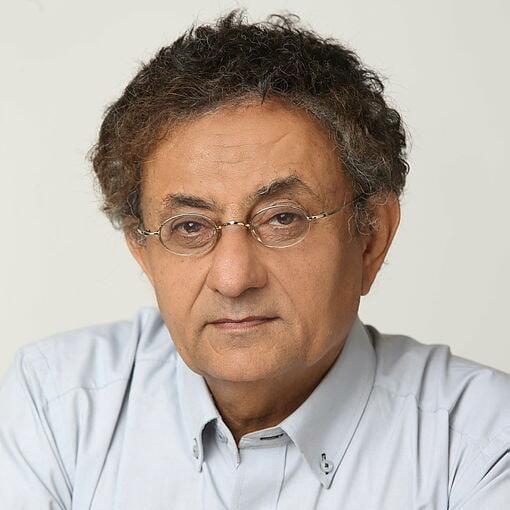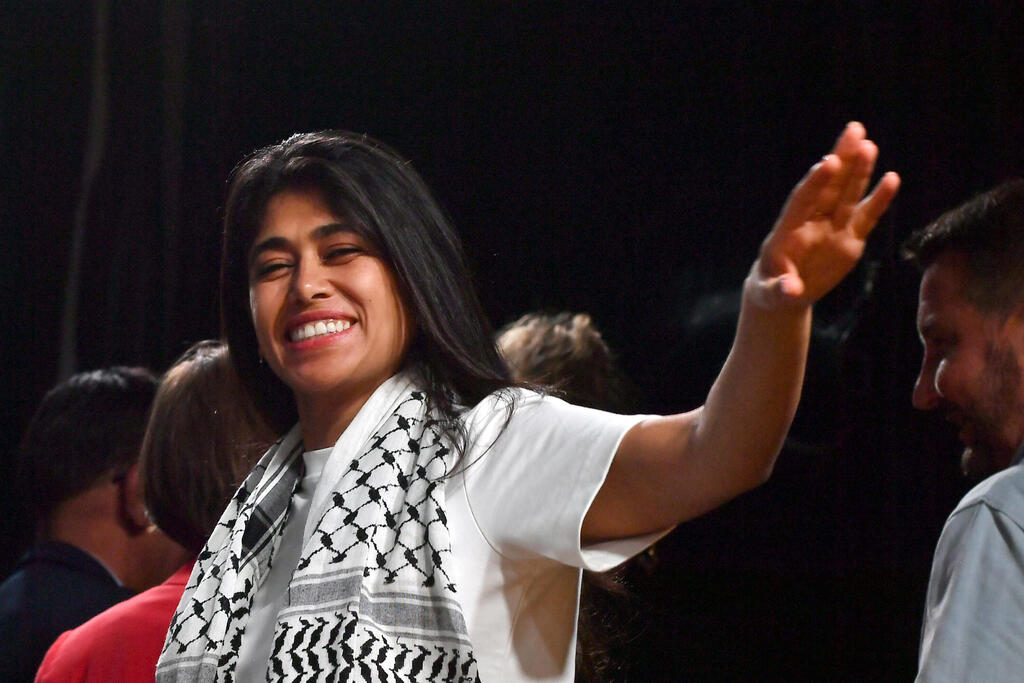Getting your Trinity Audio player ready...
"The center was defeated. The choice is now between the far-left and the far-right. I never thought I would be faced with that choice," said Jewish French philosopher Alain Finkielkraut. "The choice is between bad and worse, but in the runup elections I will vote for the far-right." Considering the number of articles Finkeilkraut and others wrote about the dangers of the far-right in recent years, this is certainly earth-shattering.
The situation in France is a bad omen. Marine Le Pen's National Front won a historic victory with 34% support. The left-wing alliance the New Popular Front, headed by Jean-Luc Mélenchon, won 29% of the vote. Emmanuel Macron's centrist party came in third with 20.5%.
Liberal democracies were characterized by a strong center. That was an essential condition for a stable democracy, based on the rule of law, human rights and the protection of minorities.
The differences between the parties on the extreme left and right were not great. But that is no more. The middle road has become weak, in the United States over the past decade, and now in France as well.
The French far-right has antisemitic and fascist roots but distanced itself from antisemitism. Meanwhile, the far-left under Mélenchon has become increasingly antisemitic.
When Jeremy Corbyn became leader of the British Labour Party, his anti-Israel positions became more extreme. He never publicly expressed antisemitic remarks but had been a supporter of those seeking Israel's annihilation, as if to say "Me? antisemitic? Never. I am only anti-Zionist." Although Britain's far-left remains unchanged, Corbyn was ousted and that is a win.
France now has its own Corbyn in Mélenchon who is an avid supporter of the anti-West axis which includes, Russia, China and, of course, the jihadists.
"The armed attack of the Palestinian forces led by Hamas comes amid an acceleration of Israel's occupation policies," his party said in a statement released on October 7. Since then he has attended nearly every anti-Israel rally, which is mostly a demonstration in support of Hamas.
On the other extreme, Marine Le Pen has made considerable efforts to distance herself from her father Jean-Marie Le Pen's antisemitic legacy. Although he founded the party, he was ousted over his antisemitism. In contrast with Mélenchon, she expresses pro-Israel positions. But she is opposed to the kosher slaughter of meat in France and to a certain extent opposes dual citizenship that tens of thousands of French Jews who immigrated to Israel hold. Like her far-left opponent, she too is close to Russian President Vladimir Putin.
France is arriving to the runoffs battered and polarized. "This is a nightmare," said Ofer Bronstein, a French-Israeli adviser to Macron. He has nothing good to say about the far-right. He always held left-wing views but was not anti-Zionist.
He wrote a few days ago that Rima Hassan, the rising star in Mélenchon's party and a Syrian refugee of Palestinian descent was calling for the annihilation of Israel. He was attacked. "Anyone who chants 'from the river to the sea,' supports Israel's destruction and anyone who justifies Hamas also supports the destruction of Israel," Bronstein responded to his critics.
"There is a moderate left," he said, "but the alliance with Mélenchon, a man who thrives on hate and polarization, brought the far-right to victory. Rather than a Paris Olympics which the world could look up to, we will have the 1936 Berlin Olympics after Mélenchon has made the Palestinian question a cornerstone of his campaign. Hatred of Israel will translate to hatred of Jews."
As soon as the results of the first round of the elections came in, the left marched out into the streets. Hassan appeared in a keffiyeh, Palestinian flags were raised and the crowd chanted for Israel to get out of Palestine. Sinwar and the Iranians are happy. France be damned.
Violence has already begun. Macron warned it would come but his mistake was calling a snap election in the first place.
The dilemma facing the Jews is naturally greater. Most have traditionally voted for centrist parties. The sad question now is who do they fear more? A survey conducted among Jewish students revealed that 91% have been victims of at least one antisemitic incident. Seven percent of those included violence.
According to the survey, the fear of violence from the extreme left surpasses that of the far-right. While Mélenchon has emphasized the Palestinian issue, this is not the main dispute in France nor the sole reason for the far-right's growing strength. The true narrative centers on France's national identity, encompassing culture, immigration and the economy. And the Jews? Regardless of Sunday's ballot results, they will find themselves on the losing side.




